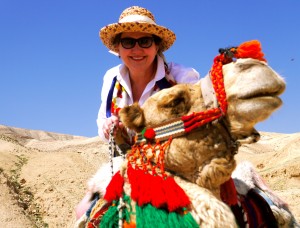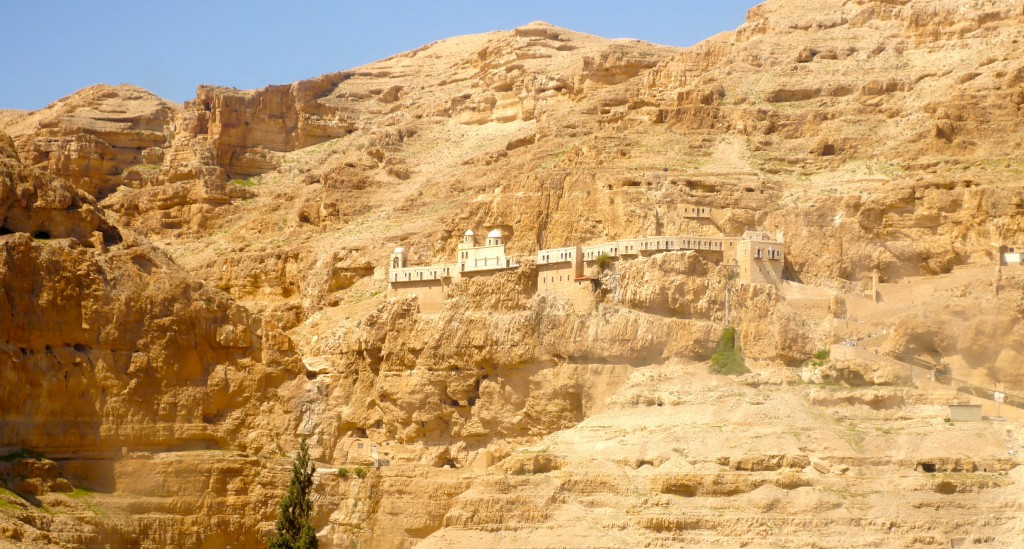The Danger of Broad Brushstrokes
 There’s a great deal to be said for a sweet-tempered she-camel like Shushi. Not only is she a pleasure to ride, with an elegant stride and good manners, but she’s the most reliable way to crisscross desert terrain in style. And I love the red tassel on her nose.
There’s a great deal to be said for a sweet-tempered she-camel like Shushi. Not only is she a pleasure to ride, with an elegant stride and good manners, but she’s the most reliable way to crisscross desert terrain in style. And I love the red tassel on her nose.
Camels get a bad rap, like a number of things in the Middle East. But those I’ve ridden have been reliable, comfortable, and cooperative—like most of the Christians, Jews, and Muslims I’ve met. There are good camels and bad camels; gracious and loving people of faith, and narrow-minded and extreme ones.
I (independently) visited archaeological sites and wandered the Old City of Jerusalem, where the three religions blend like chunky cake batter. I was part of a group returning to traditional settings important to my faith. As I traveled, my belief that it’s dangerous to paint humanity with a broad brush was reinforced. Each of us can be a person of influence and, like it or not, we represent far more than ourselves. We have a responsibility to build bridges when we can—for our children and grandchildren, if nothing else.
Nothing made these points clearer than my guide to the Monastery of the Temptation, which clings cliffside two thousand feet above Jericho (West Bank). He was courteous, extremely knowledgable, and as professional as any guide escorting me anywhere around the globe. He happened to be a Palestinian Christian, a minority receiving little press. As a non-Israeli, he was lost in the brush strokes of group lectures and discussions; negatively shaded by omission; obscured by political agenda; categorized by lineage; defined by government.
Like the camels, donkeys, goats, and sheep that brightened my trip, the people of this region are varied. They’re complex, and inextricably knotted by ancient history unfathomable to most in the “New World.”
With my finest brush, I prefer to depict individuals.
